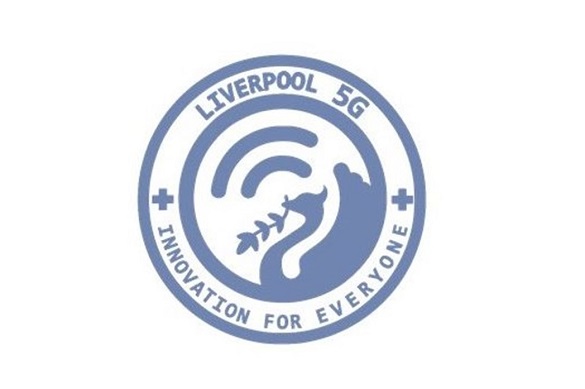
The Liverpool 5G consortium, which involves the University of Liverpool, has been awarded £4.3m funding to support vital health and social care technologies as part of a £7.2m project.
The Liverpool 5G Health and Social Care project was awarded the funding through the 5G Create competition, run by the Department for Digital, Culture, Media & Sport (DCMS), as part of its 5G Testbed and Trials Programme.
The Liverpool 5G Create: Connecting Health and Social Care project will develop a private independent 5G network for health and social care services in selected areas of Liverpool. The network will reduce digital poverty for vulnerable people in need, providing safe, free and accessible connectivity to services including health, social care and education.
The 5G technology will be used to support a medical grade device to manage and monitor health conditions remotely, an app that teaches anxiety reduction techniques, a remote GP triaging service, wound care and management and sensor technology.
Professor Joe Spencer, who is with the University’s Department of Electrical Engineering & Electronics and is the Project lead, said: “This is a great opportunity to build on our previous testbed and develop the British technology that can change people’s lives by enabling affordable connectivity and reducing digital poverty.”
The project builds on the previous 5G Health and Social Care Testbed in Kensington, Liverpool. Liverpool 5G Create will increase the area covered, upgrade the existing mmWave nodes, integrate small cell technology and trial a range of new use cases in health and social care.
It will run until March 2022 and will develop a blueprint for the use of private 5G networks in delivering public services. The blueprint will be disseminated across public bodies leading to increased use of private networks for public services with reduced risk, based on the DCMS Testbed and Trials Programme.
Digital Infrastructure Minister Matt Warman said: “5G is not just about having a faster mobile phone, so we’re funding groundbreaking projects across the UK to explore other ways in which the revolutionary technology can make people’s lives better. Coronavirus requires us to look at new ways to provide healthcare remotely to the most vulnerable and I’m delighted to commit further funding to Liverpool’s successful 5G trial working on this issue.”
Ann Williams, Liverpool City Council said: “The recent response to COVID-19 has demonstrated the need for increased use of remote health and social care services. Through this project we will ensure that services are available to those in need, removing the barriers caused by lack of affordable connectivity.”
Chief Business Development Officer at Blu Wireless, Henry Nurser comments: “This is a significant and positive step towards the UK’s ambition of becoming a global leader in 5G technology and we’re extremely proud to be part of this journey. The diversity of the partners involved in helping deliver this project underlines the level of innovation, engineering prowess and ability to deliver that we have within the UK.”
The consortium is led by the University of Liverpool with partners Liverpool City Council, Blu Wireless Technology Ltd, Broadway Partners Ltd, Liverpool John Moores University, CGA Simulation Ltd, Docobo Ltd, NHS Liverpool Clinical Commissioning Group and Merseycare NHS Foundation Trust. The project will be managed and supported by the eHealth Cluster Ltd with further services supplied by Telet Research (NI) Ltd, AIMES Management Services Ltd and Real Wireless Ltd.
The consortium looks forward to working with DCMS to take the project from a trial to a wider rollout that benefits the people of Liverpool and informs the national strategy for digital health and social care services.
Information on the previous testbed can be found at www.liverpool5g.org.uk
